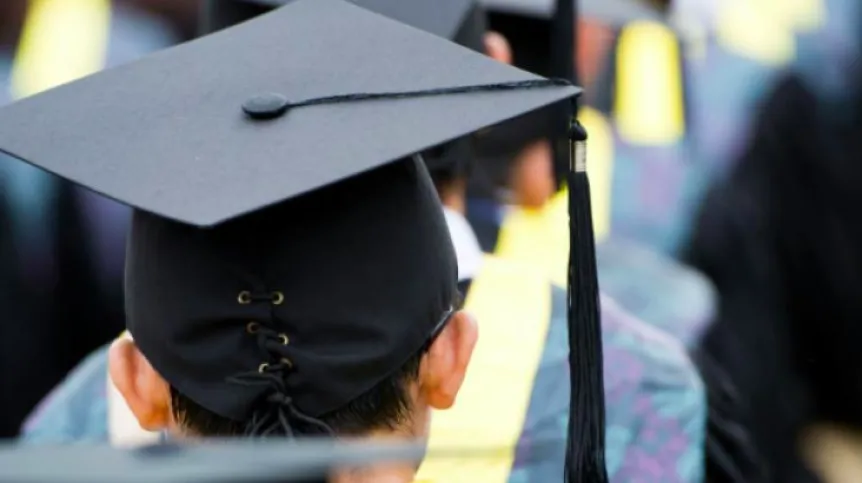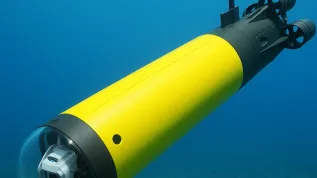
The Seim voted in favour of further work on the so-called Constitution for Science in the parliamentary committee. The project includes solutions postulated by experts, PiS representatives said. Opposition MPs drew attention to the threatened autonomy of universities.
The Seim started the work on the Law on Higher Education and Science (also called Law 2.0 and the Constitution for Science) prepared by the Ministry of Science and Higher Education. The Sejm is also working on the Regulations introducing the Law on Higher Education and Science. Its provisions will regulate the functioning of universities during the transition period, before the reforms take full effect. The law, as proposed by the Ministry of Science, is expected to become effective from the nearest academic year (October 1, 2018).
During the first reading of the project, the opposition clubs - although they voted in favour of further work on the bill - drew attention to the shortcomings of the bills. The concern voiced by all opposition clubs was related to the potential for limiting the autonomy of Polish universities. The idea of establishing a new body - the university council - was criticized, as was the planned transfer of more power over the university affairs to the rectors.
These issues were addressed by the Minister of Science and Higher Education, Deputy Prime Minister Jarosław Gowin, who presented the bill in the Sejm. "In the new law, we want to increase the powers of one-person bodies, primarily the rectors. Just like the prime minister`s strong position is important in the government, universities also need real leaders". He noted that those leaders should have "the authority of democratic elections". He reminded that the rectors were - and would continue to be - elected by the academic community.
He added that in order to increase the Rector`s competences, it was necessary to create a body that would monitor the rector, that is the university council. The bill assumes that more than half of its members will be people from outside this university. "The councils will be 100 percent elected by the academic community. (...) There is no space for external interference, especially political interference" - assured the deputy prime minister.
Gowin pointed out, however, that the governing body of the university would be neither the rector, nor the council, but the university senate. The senate would pass the university statute, study regulations, and give opinion on the development strategy. The senate would also be elected by the university`s academic community, he noted.
The minister assured that the autonomy of universities would not be reduced. "A much larger area of decisions will now be shifted from the level of laws and regulations to the level of internal acts of the university, primarily the statutes" - he added.
"System changes in the area of organization, education and principles of financing higher education are needed and undeniable, and the submitted bills contain interesting solutions" - said PiS deputy Joanna Borowiak.
According to Borowiak, "the law contains solutions most often postulated by experts and the academic community". Borowiak added that various voices and opinions of communities associated with higher education and science had been expressed in relation to the presented proposals. "We want to listen to them and address them" - she argued the decision of the PiS club.
"The bill is a tool to implement one of the priorities of the Strategy for Responsible Development, which is to improve the quality of human and social capital, also by achieving the value of spending on research and development in the amount of 1.7% of GDP by 2020, and up to 2.5 percent of GDP in 2030" - PiS deputy added.
PO deputy Włodzimierz Nykiel, citing the open letter of professors of Polish scientific centres to parliamentarians of the Republic of Poland, pointed out that "liquidation of academic self-governance and the threat of authoritarianism" may occur. Criticizing the provisions concerning the university councils, he said: "Their competences include choosing a rector or selecting rector candidates following the university senate`s opinion. (...) This regulation may lead to a situation where the university`s rector will be imposed on the academic community, that people who are not members of this community will decide about it" - said the MP.
Józef Brynkus from Kukiz `15 expressed a similar objection. According to him, there is also a fear that rectors will not be elected by the academic community, but instead "appointed" by university councils, because the university councils will give candidates to the university community like "cuckoo`s eggs". Meanwhile, according to Brynkus, rector will be "almost a dictator" in the university structures. He announced that his club would propose amendments to the bill. He also expressed concern that the university council - the new university body proposed in the bill - could be dominated by political and business arrangements.
Katarzyna Lubnauer (Nowoczesna) was concerned that unfavourable solutions would appear in the framework of parliamentary work on the bill, including those that would limit the autonomy of universities. She referred to other bills processed by the parliament and commented that in many cases, "what flew as an eagle, flew out as a duck".
Krystian Jarubas (PSL-UED) criticised the excessive strengthening of the rector`s position. In addition, according to Jarubas, the system will remain "feudal and inept" after the reform.
Małgorzata Pępek (PO) warned about "a huge threat" for regional academic centres. According to Pępek, they might not be able to compete with larger centres in terms of the level of research and teaching.
"The proposed law (...) is the first bill after January 1989 that provides for dedicated funds for regional universities" - Deputy Minister of Science and Higher Education Piotr Mueller responded to these concerns. "If we did not introduce this law now, the situation of regional universities would be worse than it will be after the introduction of this law" - he argued.
"I have the impression that some deputies suggest that the current situation is good and that this bill will make it worse - this is not the case. On the contrary, these additional funds will be allocated to regional universities, in programmes including the Regional Initiative of Excellence, the Didactic Initiative of Excellence" - said deputy minister of science.
Among the concerns of MPs there was also the suggestion that some universities may lose their names. "I want to emphasize it very clearly - no Polish university that now uses the name university, university of technology or an academy, will lose this name" - said Mueller.
MPs also asked about the solutions included in the bill and concerning state higher vocational schools. "Unfortunately, state higher vocational schools have been underestimated for many years (...) But they are really good, which is why they should be supported" - said Mueller. He added that vocational schools and state higher vocational schools would be financed with a separate financial mechanism. "They will not have to compete with academic universities, large universities, such competition would obviously be distorted" - he explained.
Mueller also addressed concerns voiced by some MPs that universities would have limited autonomy, for example in the matter of creating courses of study. "All universities that have categories A, A+ and B+ - which is a new addition - will be permitted to create their own courses of study. B+ is an amendment is not included in the bill yet" - he noted. Deputy head of the Ministry of Science reminded that other universities would be able to apply for opening new courses according to the procedure that is currently in force.
PAP - Science in Poland, Ludwika Tomala, Katarzyna Florencka, Szymon Zdziebłowski
lt/ kflo/ szz/ agt/ kap/
tr. RL













